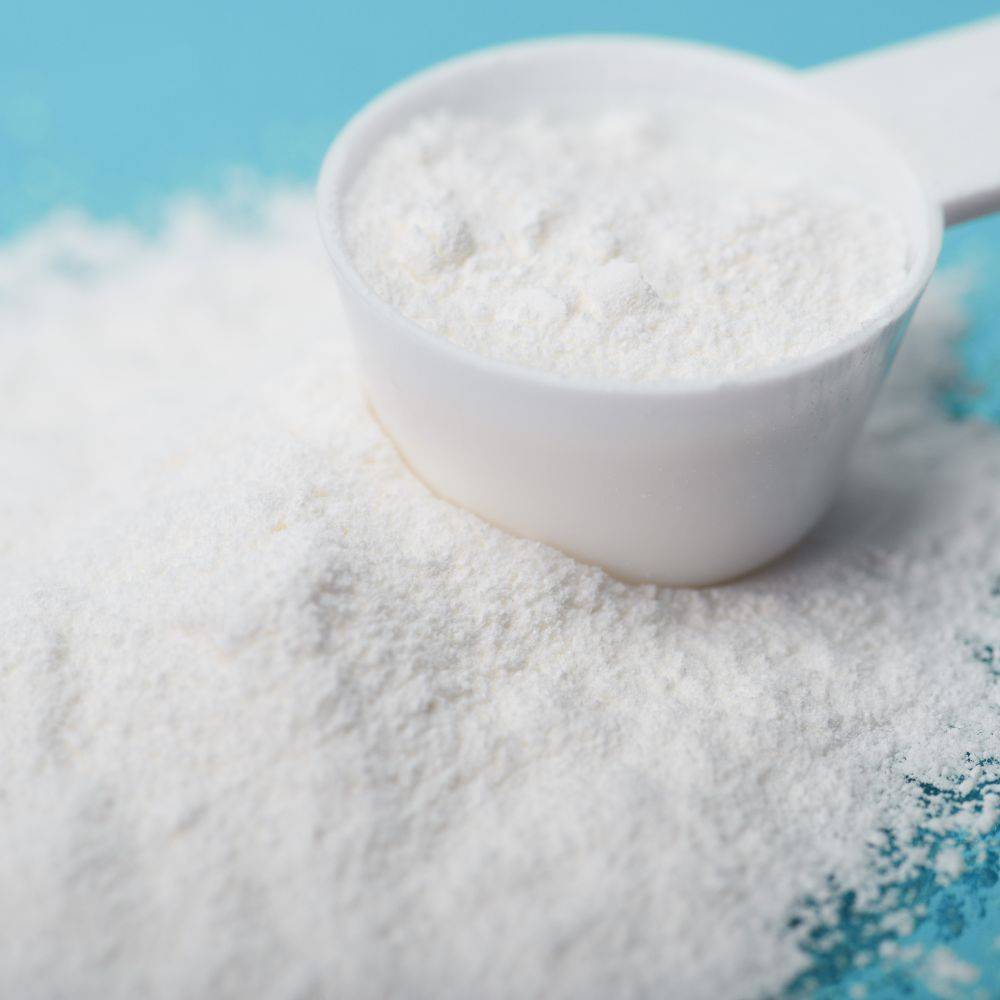Glutamine is a vital amino acid that plays a significant role in various bodily functions, particularly in muscle recovery, immune health, and gut integrity. Many people wonder, “Is glutamine produced by the body, or do you need supplements?” In this article, we will look at the body’s natural production of glutamine, its dietary sources, and when supplementation may be required.
What is Glutamine?
Glutamine is considered a “conditionally essential” amino acid. This means that while the body can synthesize it under normal conditions, there are circumstances—such as intense exercise, illness, or stress—where the body may not produce enough to meet its demands. Understanding these nuances can help you determine if you need additional glutamine through diet or supplements.
Natural Production of Glutamine
The human body can produce glutamine from other amino acids, primarily through the action of the enzyme glutamine synthetase. Most glutamine is found in muscle tissue, and it plays several essential roles:
- Protein Synthesis: Glutamine is crucial for the synthesis of proteins, which aids in muscle repair and growth.
- Immune Function: It serves as a vital fuel source for immune cells, helping maintain a robust immune response.
- Gut Health: Glutamine is a primary energy source for the cells lining the intestines, supporting gut integrity and function.
- Acid-Base Balance: It contributes to the regulation of the body’s pH levels by producing ammonia.
Dietary Sources of Glutamine
Although the body can produce glutamine, obtaining it from your diet can help ensure adequate levels, especially during periods of increased demand. Foods rich in glutamine include:
- Meat and Poultry: Beef, chicken, and fish are excellent sources of glutamine.
- Dairy Products: Milk, yogurt, and cheese provide significant amounts of this amino acid.
- Eggs: A complete protein source that contains glutamine.
- Plant-Based Sources: Beans, lentils, spinach, cabbage, and nuts also contain glutamine, though in smaller quantities compared to animal products.
When is Supplementation Necessary?
While most people can meet their glutamine needs through a balanced diet, certain situations may warrant supplementation:
- Intense Physical Activity: Athletes and individuals involved in high-intensity training may experience increased glutamine demands. Supplementation can help support recovery and muscle maintenance.
- Illness and Injury: Individuals recovering from surgery, trauma, or severe illness may benefit from additional glutamine to support healing and immune function.
- High Stress Levels: During periods of high stress, the body’s glutamine reserves can be depleted, making supplementation beneficial.
Should You Consider Glutamine Supplements?
Before adding glutamine supplements to your routine, consider the following:
- Dietary Intake: If you consume a balanced diet rich in protein, you may already be meeting your glutamine needs without supplementation.
- Fitness Goals: If you are an athlete or engage in rigorous training, you might benefit from glutamine supplements to enhance recovery and performance.
- Consult a Healthcare Professional: If you’re considering glutamine supplementation for specific health issues or intense training, it’s wise to consult with a healthcare provider or nutritionist for personalized guidance.
Conclusion
In summary, glutamine is produced naturally by the body, but certain factors may necessitate dietary intake or supplementation. While most individuals can meet their glutamine needs through a well-rounded diet, athletes, those recovering from illness, and individuals under significant stress may benefit from additional glutamine. Understanding your body’s requirements and consulting with a healthcare professional can help you make informed decisions about your glutamine intake, optimizing your health and performance.

